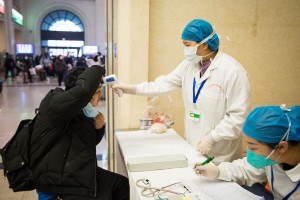
Novel Coronavirus: What You Need to Know
According to Center for Disease Control and Prevention (CDC), a new strain of coronavirus emerged on Wuhan, Hubei Province China called Novel Coronavirus, commonly known as nCov.
Coronavirus is a large family of viruses that are commonly infectious to animals such as camels, cattle, cats, and bats. Coronavirus may cause common cold or more alarming diseases such as Middle-East Respiratory Syndrome (MERS) and Severe Acute Respiratory Syndrome (SARS).
Based on early reports, nCov was linked to large seafood and animal market in Wuhan which indicates animal to human transmission. However, recent findings show spread between human interactions as some reported cases have no interaction with the said seafood market.
There is no confirmed nCov case in the Philippines
Officials of the Department of Health are closely monitoring possible nCov cases from travelers who came from Wuhan, China and other affected areas. Fortunately, there are no confirmed cases in the Philippines.
List of countries with confirmed nCoV case:
- China
- Hong Kong
- Macau
- Taiwan
- Australia
- France
- Japan
- Malaysia
- Nepal
- Singapore
- Thailand
- The Republic of Korea
- United States
- Vietnam
- Cambodia
- Sri Lanka
How is it transmitted?
Novel Coronavirus like other coronavirus diseases (MERS and SARS) is believed to have spread through droplets caused by sneezing or coughing. Therefore, virus is not airborne.
Respiratory droplets could travel for only 3 ft which indicates that this virus could only affect people in close proximity to the bearer of virus.
Symptoms
Although there are no confirmed cases in the country, if you travelled to affected areas or have close contact to people who have travelled to these areas, you should monitor for the following symptoms:
- Fever
- Cough
- Shortness of breath
If you or somebody you know is experiencing these symptoms, visit your healthcare provider.
What other factors will healthcare professionals be looking for?
Acute respiratory illness f any degree of severity (fever, cough, colds, sore throat, or pneumonia) and any of these conditional factors
- History of travel to Wuhan, China between 14 days before onset of illness
- Close physical contact to a confirmed or probable case of 2019-nCoV
- Close physical contact to a person with acute respiratory illness who has been to Wuhan, China within 14 days prior to their illness onset
- Direct contact to animals in countries where nCoV has been identified in animal population
Any of these conditions shall be asked before investigating possible nCoV case.
If you are travelling to affected areas or you are in close contact with a person who travelled from affected areas, here are some preventive measures you should follow from WHO:
- Wash your hands before touching your eyes, nose, and mouth. You may use alcohol-based hand rub or soap and water.
- Cover your nose and mouth with tissue, handkerchief, or flexed arms when sneezing or coughing. Afterwards, throw the tissue and wash your hands.
- Avoid close contact with people who are sick (coughing and sneezing)
- Do not consume undercooked or raw animal meat and animal products. Handle raw meat, animal organs, and milk with utmost care to prevent cross-contamination
- When visiting live markets in affected areas, prevent unprotected contact with live animal in affected areas and surfaces wherein live animal has close contact to
Don't panic. Be informed. Stay vigilant. Take Precaution.

